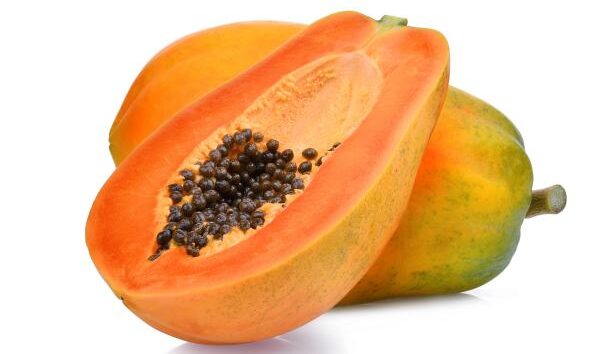Wellhealthorganic.Com: Weight Loss in Monsoon These 5 Monsoon Fruits Can Help You Lose Weight
You’re enjoying the monsoons, right? When temperatures drop, we long for comfort foods like chaat, pakodas, and masala chai. Indulging occasionally is fine, but if you find yourself at a chaat/pakoda stall three or four times a week, you might have a problem. Our bodies become more vulnerable to seasonal diseases as the seasons change. The good news is that in addition to boosting your immunity, the abundance of fruits and vegetables that monsoons bring can also aid in weight loss. These fruits satisfy hunger pangs perfectly in the middle of a meal. Read the blog!
The Metabolism and the Effects of the Monsoon?
The slowing of your metabolism during the monsoon season can make it difficult to lose weight. The effects of the monsoon season on your metabolism and related functions, such as digestion and absorption, are multifaceted. This article explores how the monsoon affects metabolism and why losing weight during this time of year is more arduous.
Also Read – Wellhealthorganic.Com/Know-The-Causes-Of-White-Hair-And-Easy-Ways-To-Prevent-It-Naturally
What Happens to Your Stomach During a Monsoon?
Your digestive tract may have a more challenging time processing food and keeping your metabolism in check during the monsoon season.
The effects of the monsoon on the digestive system are as follows:
- Reduced Metabolism: The body’s metabolic rate drops during the monsoon due to the cooler weather. Because of this, calorie burning is slowed down.
- Infections: Bacteria thrive in the humid conditions of monsoons, causing infections that can be contracted by eating or drinking contaminated food or water. These infections can cause stomach distress and vomiting.
- Impaired Immune System: People with compromised immune systems may be more prone to sickness when air humidity levels are high. This can make it harder for the body to fight infections, leading to a compromised immune system.
Monsoon Metabolism Boosting Strategies
Your metabolism may slow down dramatically during the monsoon, making it more challenging to lose weight. You can do a few things to rev up your metabolism this time of year.
- First, keeping your body hydrated with warm water all day is essential to detoxify and digest.
- Second, eat more foods with natural thermogenic characteristics like ginger and turmeric to speed up your metabolism.
- Third, eat a diet high in fibre-rich fruits and vegetables and lean protein to improve digestion and absorption of nutrients.
- Last, keep your metabolism and body fat percentage down by regular exercise.
With these suggestions, you can maintain weight reduction efforts and speed up your metabolism throughout the monsoon season.
The Monsoon Season Highlights the Need for Portion Control
While eating more during the monsoon season is tempting, keeping a reasonable calorie and fat intake will help you stay healthy and prevent disease. When the digestive system weakens, as it often does during the monsoon, eating a lot of food at once might cause discomfort. This is why eating several smaller meals regularly is so beneficial.
The monsoon season presents three opportunities to practice portion control.
- Cut down on the size of your plates and bowls.
- Two-thirds of your plate should be devoted to veggies, while the remaining third should be split between grains and meats.
- Watch your portions and listen to your body when it tells you it’s complete.
Maintaining a healthy weight and preventing digestive-related disorders can be accomplished with conscious portion control during the rainy season.
Also Read – Wellhealthorganic.Com:Amazing-Beauty-Tips-Of-Ice-Cube-Will-Make-You-Beautiful-And-Young
Weight Loss in Monsoon: These 5 Monsoon Fruits Can Help You Lose Weight
Jamun
The black plum Jamun contains beneficial minerals like vitamin C, potassium, and iron. Jamun is an excellent snack for diabetics during the monsoon season because of its high fibre content and ability to prevent rapid increases in blood sugar.
Pineapple
Pineapples can now be found year-round. The bunches that arrive throughout the summer and the beginning of the monsoons tend to be the tastiest. Take advantage of this low-calorie, high-fibre fruit while you can.
Cherry
Cherry’s anti-carcinogenic capabilities are believed to reduce cholesterol and maintain healthy blood pressure. Cherry’s high levels of potassium and antioxidants also help the body fight off the common cold and flu.
Also Read – Wellhealthorganic.Com: Diet-For-Excellent-Skin-Care-Oil-Is-An-Essential-Ingredient
Pomegranate
The B vitamins and folate in pomegranate seeds contribute to healthy red blood cell formation, improving blood flow. The use of this fruit has been linked to significant improvements in the treatment of hypertension and cardiovascular problems.
Papaya
Papain, an enzyme found in papaya, aids in digestion and promotes digestive tract health. Vitamin C, a potent antioxidant, can be abundant in papaya and helps maintain healthy skin, hair, and nails.
Conclusion
wellhealthorganic.com:weight-loss-in-monsoon-these-5-monsoon-fruits-can-help-you-lose-weight. Never forget that your food is directly responsible for your health and well-being. As a result, watch what you put into your body. Maintaining a healthy immune system is critical, so carefully consider your nutrition and surroundings. These diet suggestions help get you started on the path to better health, but remember that successful weight loss calls for a multifaceted strategy that addresses the usual suspects like food and exercise and more modern concerns like anxiety, insomnia, and chronic pain.
























